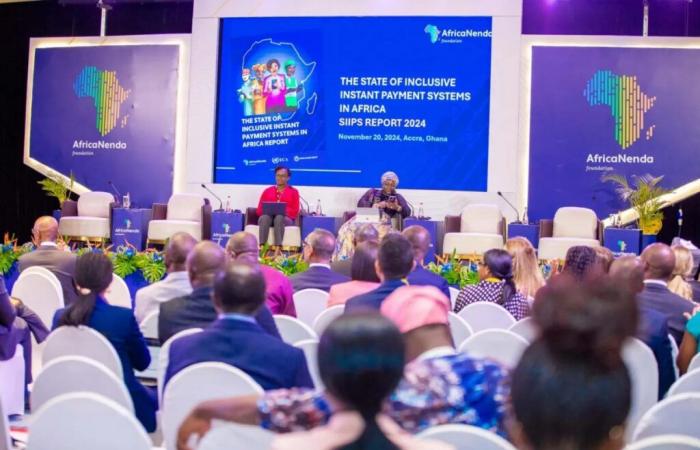The SIIPS 2024 Report, unveiled today in Accra, highlights a major transformation in the African financial landscape thanks to the rise of Instant Payment Systems (IPS).
Written in partnership with AfricaNenda, the World Bank and the United Nations Economic Commission for Africa (ECA), this document provides an in-depth analysis of the progress, challenges and prospects of SPIs for financial inclusion on the continent.
A remarkable expansion
With 31 active SPIs in 26 countries et 27 initiatives in preparationAfrica is establishing itself as a global engine of financial innovation. In five years, SPI transactions have recorded an impressive increase of 37% and volume et 39% in valuesupported by the growing adoption of digital payments, the proliferation of mobile telephony, the rise of fintechs and favorable regulatory policies.
This expansion promises significant impact for underserved populations, particularly in rural areas. “ The goal is to achieve universal financial inclusion by 2030 “, emphasized Dr. Robert Ochola, CEO of AfricaNenda, emphasizing the need for regional collaboration to overcome the remaining obstacles.
The challenges of total inclusion
Although progress is notable, the report highlights significant gaps. No SPI has yet reached full maturity in terms of inclusiveness. The main challenges include:
- Limited access for vulnerable groupsparticularly women, facing concerns related to security, fraud and network reliability.
- Insufficient recourse mechanismsessential for building trust in digital payments.
- The diversity of use casesnecessary to meet the varied needs of consumers.
A vision based on solid data
The report is based on surveys of SPI operators and central banks, market research in five countries (Algeria, Ethiopia, Guinea, Mauritius and Uganda) and interviews with experts. Detailed case studies in South Africa, Mauritius, Tanzania and Zimbabwe provide nuanced perspectives on specific advances and challenges.
An opportunity for the future
Jean Pesme, Director of the Global Finance Center at the World Bank, recalled that “ Access to secure and affordable digital payments can transform lives, reduce inequality and boost the digital economy “. With the 27 SPIs under developmentthe continent has a unique opportunity to become a global leader in financial inclusion and economic empowerment.
The SIIPS 2024 Report calls for collective efforts to consolidate these achievements and ensure that the benefits of SPIs reach all citizens, without exception.
For more information on the SIIPS 2024 Report, including data-driven analyses, case studies and expert interviews, visit www.africanenda.org/siips2024.






